Hydraulic hoses are used to deliver hydraulic fluid in hydraulic systems, which is the most important part in the system, so many people are concerned about the hydraulic hose price and cost, to reduce their business cost. Here are we will discuss various factors that influence the price of hydraulic hoses to help you make informed purchasing decisions. By exploring hydraulic hose cost aspects, you can find out how to save money on hydraulic hoses.
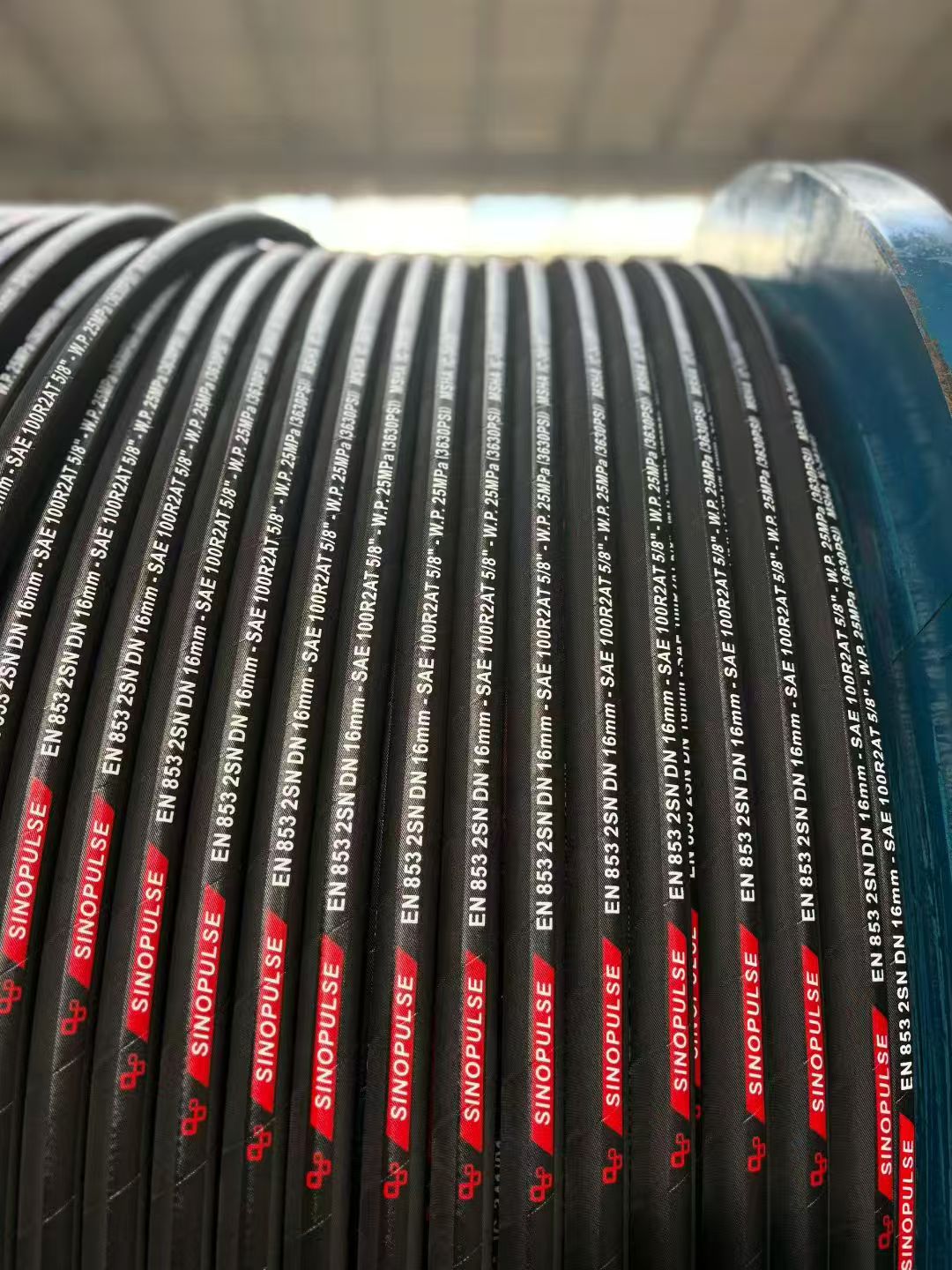
General Guidelines for Hydraulic Hose Price
Stansard hydraulic hose for Low&medium pressure applications costs about from $10 to 20 per 10 feet. For example, a 3/8-inch 10 ft diameter rubber double braid hydraulic hose costs about 10$ from an online retailer.
And heavy-duty hydraulic hose for High-pressure applications costs from $100 to 150 per 100 feet. e.g., Heavy-duty 1″ x 100 ft. bulk hydraulic hose made with thermoplastic elastomer and rated for 5000 PSI: ~$100 – $150.
Specialty/heavy-duty/ultra-high-pressure hose (with wire spiral or multi-braid) can cost $10 or more per foot, and a full roll or tube can cost several hundred dollars or more.
Why are hydraulic hoses so expensive?
Hydraulic hoses have high-quality materials and complex hose construction to meet safety standards. So it has a higher price than normal rubber hoses.
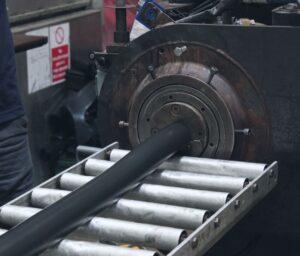
Expensive hydraulic hoses have high-quality materials to ensure durability, such as multi-layered synthetic rubber and high-strength steel wire reinforcement, so they are more expensive than standard rubber or plastic.
Hydraulic hoses also have complex manufacturing processes. The production of high-pressure hydraulic hoses has a braided or spiral process and rubber bonding techniques. This complex manufacturing needs specialized machinery and highly skilled workers, increasing hose production costs.
Strict testing and safety standards: To ensure safety and reliability in critical applications, hydraulic hoses must test rigorously, including burst pressure, pulse, and abrasion resistance tests.
Meeting international standards (such as SAE, ISO, and EN) ensures hose performance under extreme conditions, but these certifications also increase manufacturing costs.
Of course, if you need customized and specialty hydraulic hoses for specialized applications—for example, those requiring non-conductivity, extreme flexibility, or resistance to specialized chemicals—hoses need to be made with custom materials. These specialized requirements further increase the cost compared to standard hoses.
In addition to the bulk hose, if you want to buy a hydraulic hose assembly, the cost of the hoses should include fittings and adapters. It needs to crimp or connect these fittings to the hose, which also impacts the final price.
While hydraulic hoses are expensive, they are an important part of hydraulic system safety. Hoses are expensive, but they're necessary, or you would risk equipment downtime and incur additional costs
Factors Affecting Hydraulic Hose Price
Hose size and length affect its price. Larger diameters hose and longer lengths of hose are more expensive because they use more material. The hose pressure rating costs much more. Higher pressure ratings require more complex production processes and materials, leading to higher prices.
Price also depends on the hose material. Synthetic rubber is the cheapest, followed by thermoplastic elastomer (TPE), with stainless steel being the most expensive.
Hydraulic hoses' construction typically has three parts, and the number of braided/spiral reinforcing layers also affects price. High-pressure hoses typically have one or two braids. More braids indicate higher pressure capacity but also a higher price.
Also, decide if you need pre-assembled hoses with specific fittings or bulk hose to install your own fittings. Pre-assembled is convenient but pricier.
For an accurate quote, consult a hydraulics expert and consider your specific needs.
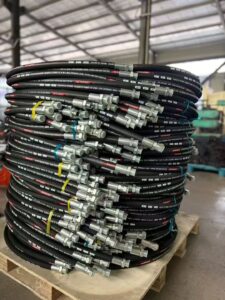
Hydraulic Hose Price per foot
Bulk hose is priced by length. Pre-assembled hose is priced by fitting type and length. Different retailers have their own pricing standards.
How much does it cost to make hydraulic hoses?
The cost to make hydraulic hoses depends on many simple factors.
The type and the material of the hose play a key role in the price. Standard hoses are often made with rubber or plastic. They work well in low-pressure systems and cost less. Hoses for high-pressure use need a stronger build. They are often made with steel wire, either braided or spiral. These hoses cost more than standard ones. Some hoses need to work in very hot, very cold, or harsh chemical settings. These special hoses often have a higher price.
The size of the hose also changes the price. A longer hose needs more material and more work, so it costs more. A hose with a bigger diameter also uses more material. It may need stronger or more complex ends, which raises the cost.
Hose assemblies also need fittings and connectors. The price depends on the type. JIC, ORFS, and NPT fittings all have different costs. More fittings mean a higher cost. Fittings made with stainless steel are more expensive than those made with carbon steel or brass. Hose ends can be straight or crimped. Crimped ends cost more because they need special tools and labor. Custom ends, such as angled or curved designs, also add cost.
Labor is another factor. Cutting hoses to the right length and crimping the ends takes time and skill. If the job needs many fittings or high accuracy, the labor cost will be higher.
Custom requests can increase the price, too. A hose with a special length adds cutting and crimping work. A hose made with rare materials or built to handle strong heat or chemicals costs more. Fittings that are not easy to find will also make the assembly more expensive.
It is not easy to give one clear price for all hoses. But it is clear that many simple factors change the final cost. Knowing these points and working with a trusted supplier will help you get good value.
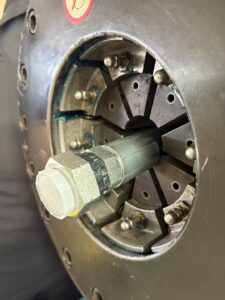
How much does it cost to replace a hydraulic hose?
The price to buy a hydraulic hose is usually between $20 and $150. The final cost does not only come from the hose itself. It also depends on labor, the job’s difficulty, and the type of hose and fittings. When you plan a budget for replacement, it is important to think about all of these factors. This will help you avoid surprise costs and reduce downtime.
Several main points affect the cost of replacing a hydraulic hose:
The first is the material and type of hose. Standard rubber hoses are the cheapest option. Hoses made for high pressure, extreme heat, or chemical resistance cost more. These include multi-braid hoses, thermoplastic hoses, or PTFE hoses. Special hoses made for unique uses are usually the most expensive.
The size and length of the hose also matter. Longer hoses need more material, so they cost more.
Replacing a hose usually means replacing the full assembly. This includes the hose, fittings, and connectors. The fitting type, such as JIC, ORFS, or NPT, changes the price. The fitting material also matters. Stainless steel costs more than carbon steel. Pre-made hoses with crimped ends save time but usually cost more than buying parts and assembling them.
Labor adds another cost. Changing hydraulic hoses can be risky and must be done by trained workers. Labor prices change by region and by the worker’s skill. Complex systems or hard-to-reach hoses take more time, so labor cost goes up. Emergency work or jobs done after normal hours are also more expensive.
Lost time from broken equipment can be even more costly than the hose itself. A failure may also point to bigger problems in the system. In such cases, you may need to change other parts or make extra repairs.
Using good quality hoses and the right fittings will help lower these risks. It also helps reduce downtime and control the overall cost.
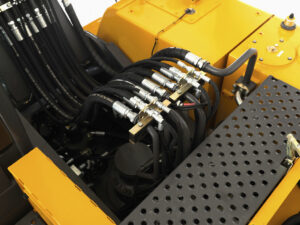
Hydraulic Hose Repair Costs
The cost to repair or replace a hydraulic hose can be anywhere from $20 to $1,000. A simple hose change is often cheap. But the total cost can rise fast once you add labor, special tools, and the difficulty of the job. For many businesses, the money lost during downtime is even higher than the repair itself. This makes fast and reliable service very important.
The hose price mainly depends on size, pressure rating, and material. A hose with a bigger diameter or higher PSI costs more. Hoses built for extreme heat or cold also have higher prices. End fittings add a big part to the cost too. Stainless steel fittings cost more than carbon steel or brass. Custom fittings increase the price even further.
Repair work also needs skilled technicians. This adds labor costs. The cost changes with the worker’s skill, the difficulty of the job, and how easy it is to reach the hose. Emergency calls or mobile on-site service often cost much more.
For many companies, the largest cost is not the hose or the labor. It is the lost work and revenue while machines are down. This hidden cost often makes businesses choose faster service, even if it is more expensive.
How to save on hydraulic hose costs:
One way to save money is to buy in bulk. If you need many hoses with the same size and specs, bulk orders often lower the cost per piece.
Before you buy, check prices with more than one supplier. Direct manufacturers often give better prices than online shops or local stores.
Another option is to use second-hand hoses. This may work for non-critical jobs. But you must check them carefully. Make sure they are safe and strong enough before use.
How Much Does It Cost to Start a Hydraulic Shop?
Making hydraulic hoses can be a good business. Many industries need them, such as construction, farming, and manufacturing. This steady demand makes both hose making and hose repair profitable. You can earn money by offering crimping services, keeping enough stock, and running an efficient shop.
Starting a hose business needs a large upfront cost. You need special tools and a wide range of inventory. The cost depends on your business type, size, and location. It can range from tens of thousands to hundreds of thousands of dollars. A big part of this money goes into machines, such as crimping tools and cutting saws. These tools are key for safe and accurate work.
You also need to stock many hoses with different sizes, pressure ratings, and materials. On top of that, you must carry fittings like JIC, ORFS, and NPT. A wide inventory lets you serve more customers and finish jobs faster, but it also adds cost.
If you run a mobile hose service, you need a service truck. The truck must hold storage units, a generator, and often a small crimping tool. This raises your startup cost. If you run a fixed shop instead, you avoid buying a truck. But you must pay for a workspace, utilities, and the setup of both shop and office areas.
No matter which model you choose, you need licenses, permits, and insurance. You must also invest in training. Workers should know hose assembly, hydraulic systems, and safety rules. Training adds to the cost, but it is key for quality work and customer trust.
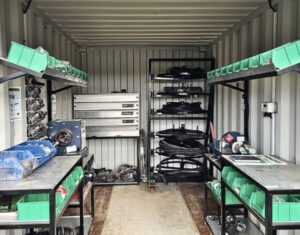
What determines the price of hydraulic hose?
Hose Specifications
The price depends on size, pressure rating, and material. A hose that is larger, stronger, or made for extreme heat or cold will cost more.
Number of Braids
Most hydraulic hoses have one or two steel braid layers. More braids mean higher pressure strength, but also a higher price.
Quantity and Length
Buying in larger amounts can lower the price per hose.
Fittings
Hose ends connect the hose to machines. They come in many shapes and materials. Crimp fittings cost more than reusable ones. Stainless steel costs more than brass or carbon steel.
Brand Choice
Prices change by brand and supplier. Some lesser-known brands still offer strong quality at lower cost.
Bulk vs. Pre-Cut
Bulk hose usually costs less per foot. Pre-cut or pre-assembled hoses with fittings are easier to use but cost more.
Testing and Certification
Some systems need pressure testing or safety checks. This adds to the cost.
Special Needs
Hoses made for extreme heat, cold, or chemicals also cost more.
How to Choose the Best-Priced Hydraulic Hose
Compare prices from online shops and local stores.
If you need many hoses with the same size and specs, buy in bulk to save money.
For OEM orders, buy straight from the factory. This skips middlemen and lowers cost.
Do not look only at price. Good service and product quality are also important. They help you avoid downtime and extra costs.
Where can I buy cheap hydraulic hose?
For affordable, reliable hydraulic hose, explore direct manufacturers and high-volume suppliers. Sinopulse offers high-quality hydraulic hose at competitive prices, shipping worldwide from China. We offer a wide range of specifications, ensuring you receive the quality and product you need. Contact us now!